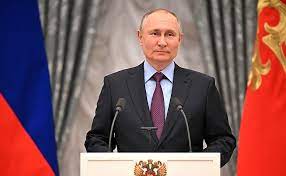In disinformation campaigns, like the long-standing pro-Kremlin campaign targeted at Ukraine by the Russian government and its allies, who is at most at risk of believing false information? A new research paper by MIT Sloan School of Management Prof. David Rand, McGill University Prof. Aaron Erlich, and their colleagues found that Ukrainians who engaged in more analytic thinking were less likely to believe the pro-Kremlin disinformation, even if they were generally pro-Russia.
“We found strong evidence that analytic thinking helps curtail belief in misinformation. This is grounds for optimism in Ukraine, which has a long history of fabricated news and pro-Kremlin disinformation. The fact that Ukrainian citizens can still distinguish falsehoods from truthful news sheds a lot of light on how we can further improve the information environment in countries facing similar disinformation campaigns,” says Rand.
Erlich points out that Ukraine provides “a new and fascinating” context to study the relationship between analytic thinking, political ideology, and belief in misinformation and disinformation. It is a unique information space because of the high volume of disinformation attacks from Russia and its history of distrust in institutions, making it qualitatively different from the Western democracies in which most prior disinformation studies have been conducted.
Ukraine’s legacy as a post-communist country is also relevant, as media outlets under communism were subservient to state propaganda efforts and the government used the media to maintain its power. As a result, post-communist societies like Ukraine tend to have low trust levels in state and media institutions. Further, media owners in Ukraine actively intervene in news coverage to show their support of political patrons, causing more skepticism of information. That environment combined with a ramped-up disinformation campaign from the Kremlin and its supporters since 2014 has likely made it even more difficult, especially online, for Ukrainians to distinguish truth from disinformation, he notes.
In this environment, it was unclear whether greater analytic thinking, which prior work has linked to the ability to identify falsehoods in the U.S., would be similarly protective in Ukraine. To shed light on this issue, the researchers sought to determine if Ukraine’s environment and history would “eliminate or even reverse” the relationship between cognitive reflection and belief in disinformation.
Their study, which used online and face-to-face representative samples of Ukrainians, found that Ukraine’s environment does not eliminate or reverse the positive relationship between analytic thinking and truth discernment. “The results demonstrated a similar pattern to prior work using American participants. Despite low trust in government and media, weak journalistic standards, and years of exposure to Russian disinformation, Ukrainians who engage in more analytic thinking are better able to tell truth from falsehood,” says Rand.
He adds, “This is an important contribution to the literature on the political psychology of misinformation. Individuals who engage in analytic thinking are more likely to rate false stories as false and true stories as true. This was the case regardless of Ukrainians’ political position on Russia. Our study provides strong evidence for the role of analytic thinking in improving information environments in countries like Ukraine.”
Rand and Erlich are coauthors of “Does analytic thinking insulate against pro-Kremlin disinformation? Evidence from Ukraine,” with Calvin Garner of the University of Washington, and Gordon Pennycook of the University of Regina, which has been formally accepted for publication in the peer-reviewed academic journal, Political Psychology.
(Courtesy MIT Sloan School of Management)












